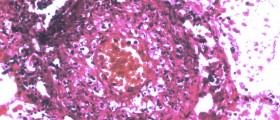Chronic Inflammatory Demyelinating Polyneuropathy
CIDP is a short term that is used for the condition called chronic inflammatory demyelinating polyneuropathy. This is an autoimmune disorder of the peripheral nervous system, and its main characteristics are that people who suffer from it will gradually begin to experience problems with motor-sensory, and they will begin to lose sensation in the legs and in the arms.
This happens due to the fact that the nerves are damaged or destroyed and they do not react to electrical impulses as they are supposed to. Since it is progressive and since it has a number of similar symptoms to another progressive inflammatory neuropathy Guillain-Barre syndrome it is considered to be the chronic type of it.

Even though this is a very rare condition, and even though it is sometimes very hard to diagnose it several causes of CIDP have been identified so far. Some of them are problems related to the immune system, some of them are related to genetics and the change in genes, and it is also known that some drugs and chemicals may cause this type of peripheral neuropathy.
Is there a Cure?
When it comes to the treatment of this disease, the fact is that it can never be predicted how the disease will develop in the individual case and how the individual will react to the treatment. The truth is that many patients recover from CIDP successfully especially if the condition is diagnosed at an early stage but on the other side there are those who do not manage to fight off this disease at all or to fight it off without any consequences left.
Most commonly such consequences are related to numbness, tremors, tiredness, as well as many other symptoms that affect the quality of life and mobility of the person.
Despite the fact that each case is different, the process of the treatment consists of several elements. Corticosteroids are a part of the standard therapy, as well as immunosuppressants, whether cytotoxic or non-cytotoxic. When immunoglobulin has to be used it is given intravenously, and it has turned out that it stops CIDP from relapse.
- Articles published from January 1990 to December 2012 were searched for studies to treat adults with chronic inflammatory demyelinating polyradiculoneuropathy. Peer-reviewed full-text articles published in English were included.
- Nine placebo-controlled double-blinded randomised trials were reviewed to treat subjects with chronic inflammatory demyelinating polyradiculoneuropathy exhibiting various degrees of effectiveness.
- The most effect treatments were; three randomised controlled trials using intravenous immunoglobulin, a study comparing pulsed dexamethasone and short term prednisolone and rituximab all showed promising results and were well tolerated.
Sometimes plasmapheresis or the exchange of plasma will also have to be included in the treatment since it proved to be very effective. What also proved to be extremely helpful in the treatment of the people who suffer from this disease is the combination of physical therapy and massage.

















Your thoughts on this
Loading...